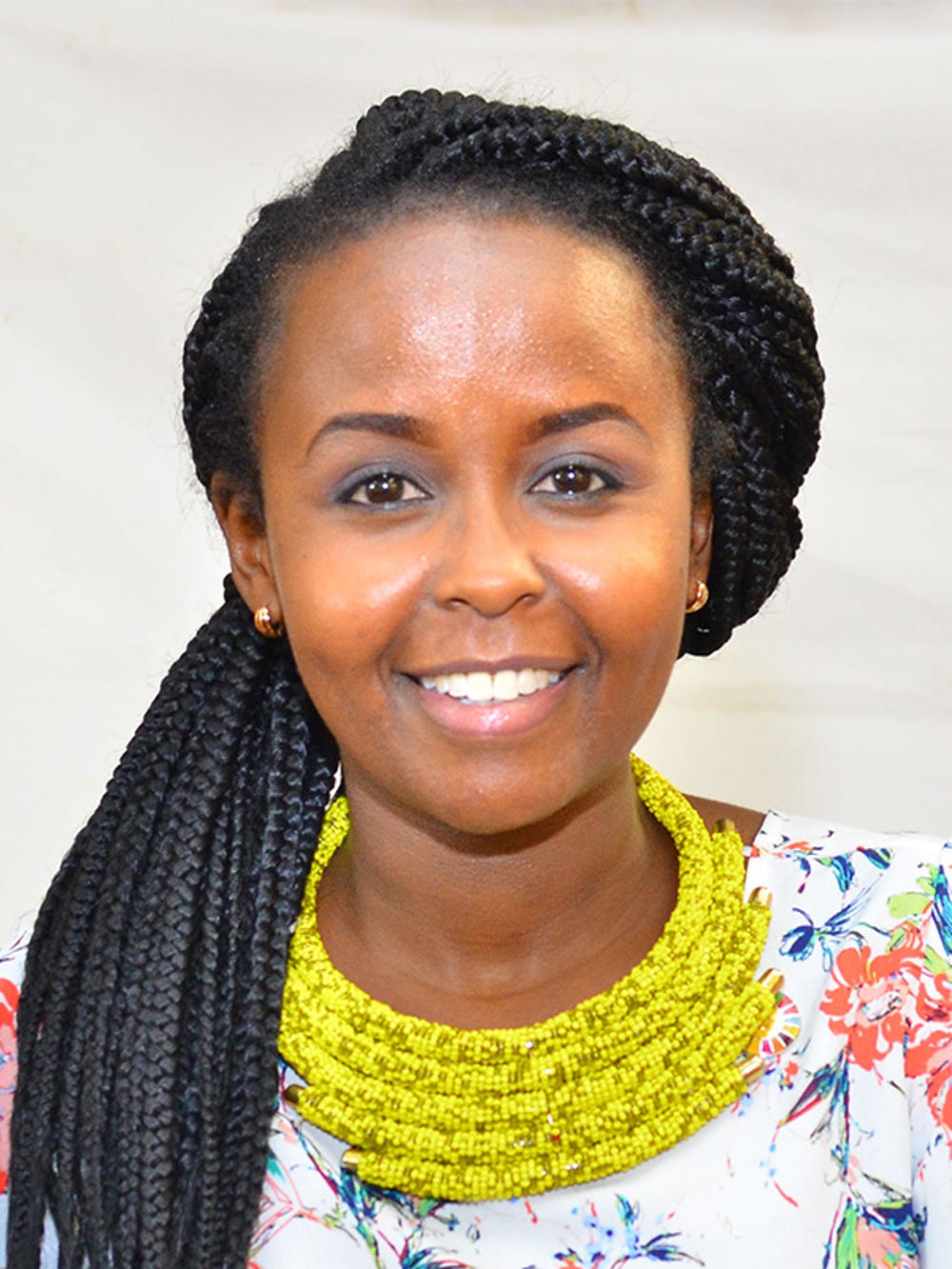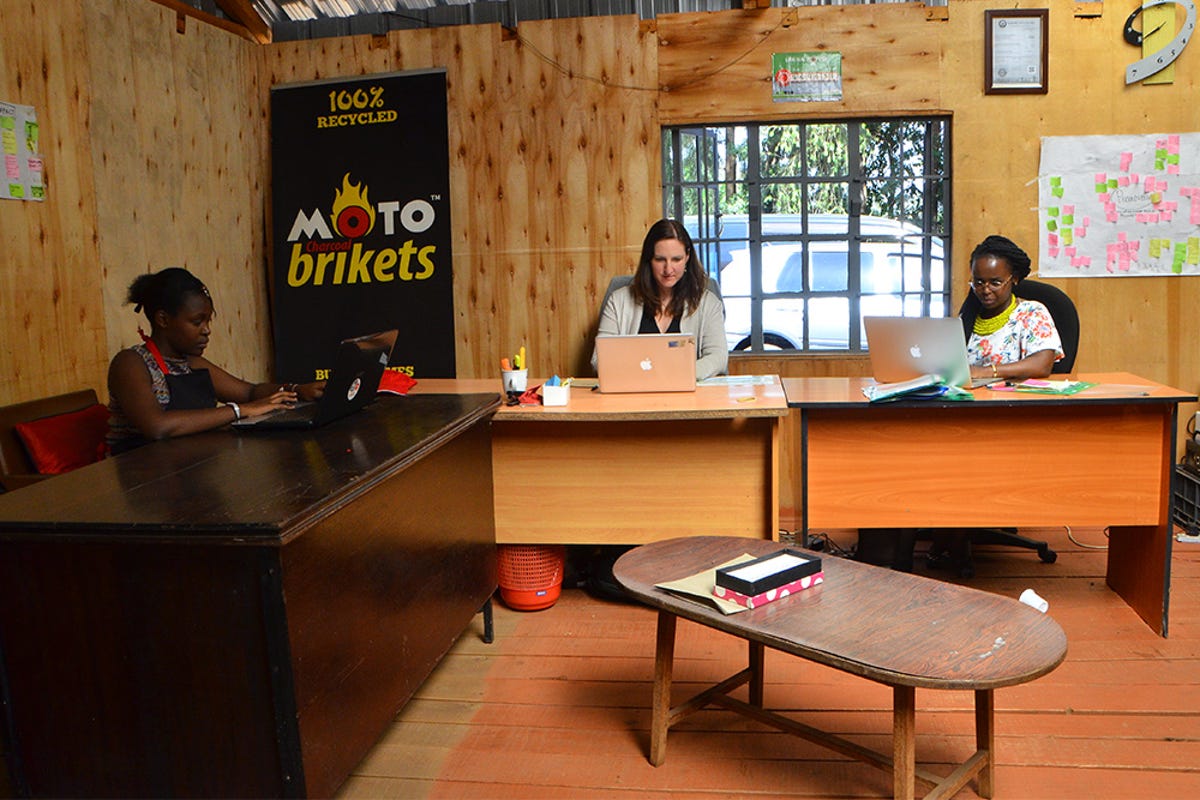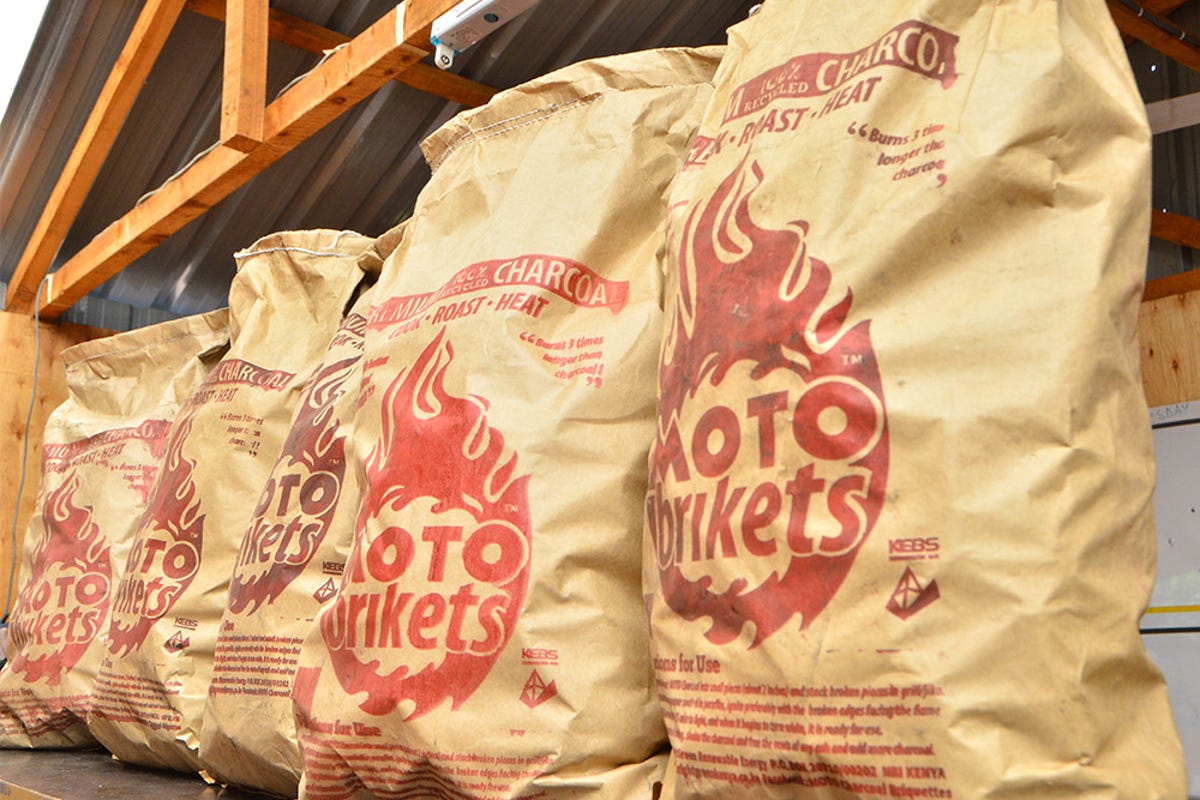Fellow Portrait
Chebet Lesan
BrightGreen Renewable Energy

Updated March 2019
In Kenya, over 80% of the urban population uses firewood and wood-derived charcoal for cooking and heating. This has serious consequences on both the ecology and human health. According to the Global Alliance for Clean Cookstoves, the harmful smoke emitted by the wood, coal and charcoal that is burned in traditional stoves and open fires claims 4 million lives every year around the world.
On an ecological level, the timber required to make the millions of tons of charcoal that Kenya consumes each year has led to mass deforestation – a loss of 310,000 ha in the years spanning 2000 to 2017, the World Resources Institute reports, or 9.3% of its total forest area. To combat the knock-on effects of deforestation on Kenya’s worryingly low water levels, in February 2018 the government placed a temporary ban on tree logging. Since extended, it is currently set to run until November 2019. With less charcoal being produced, prices have surged, leaving many without access to affordable fuel. But this is also opening extra opportunities for alternatives.
We’re learning a lot of lessons along this impact journey and constantly making changes to improve our reach.

Smoke-free briquettes
Chebet Lesan, a 29 year-old industrial designer from Nairobi, has developed a solution that responds to these issues. Her company, BrightGreen, produces fuel briquettes made of post-harvest biomass waste which farmers, who have no use for it, would typically burn off in the open air. By upcycling this agrowaste – a mix, among other materials, of sugarcane and maize stalks – BrightGreen produces a range of briquettes under the brand name MOTO, which means “fire” in Swahili. “Thanks to our proprietary blend, MOTO briquettes have high heat value and no smoke,” Chebet explains.
To make its briquettes, BrightGreen has developed its own machinery and production outfit which employs ten full-time personnel capable of producing 1 to 1.5 tonnes daily. Its eco-friendly offer stands out through the packaging, in small, easy-to-carry formats and three product lines: King for high-heat fast cooking; Pika for grains and longer boiling; Kuku for small-scale farmers to warm livestock at night. Each retails at $0.5 to $0.6 per kilo. “It’s a favourable price for low-income populations: the majority of our customers live on less than $4 a day.”
Women are the biggest users of cooking energy in households and we are working to bring them into our value chain.

Last-mile distribution
To take MOTO to market, BrightGreen partners with women micro-entrepreneurs running individual kiosks. “Women are the biggest users of cooking energy in households and we are working to bring them into our value chain,” says Chebet. They also create awareness for this new product in risk-averse, cash-constrained communities. With 20 active distribution points, sales have exceeded half a million kilos since 2016 and the company is starting to turn a profit. The funds it receives from participating in the Cartier Awards will help to set up new production areas directly in farming regions around Western Kenya. “We want to increase accessibility to our raw materials and reduce the logistical burdens on small-scale farmers.”
Chebet’s bright idea came to her during a community-based innovation summit at Mount Kilimanjaro, where the forests at the foot of its slopes have been all but decimated for firewood over the years. The memory of visiting her grandmother ‘s small hut that was constantly filled with dark smoke – one of millions of Africans living in polluted environments simply to cook and to heat their homes – further fired her desire to make a bright and distinctly green difference.
Being a woman entrepreneur is incredibly challenging. I’m so thrilled to be joining the Cartier Awards community to gain support from other women and advice from top business minds.


